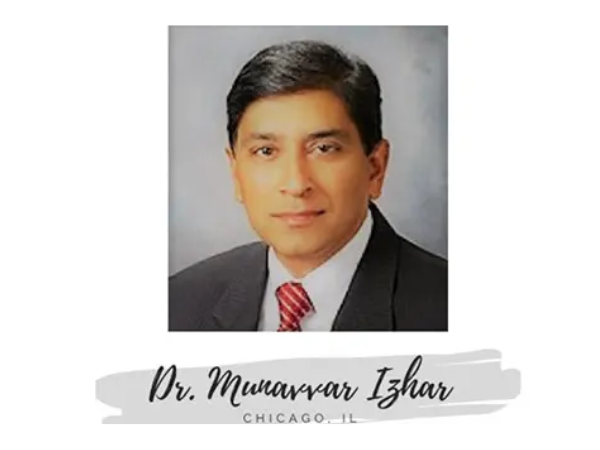
Access to quality healthcare services is something that is necessary for human well-being and survival. While other industries can be seen as optional, healthcare remains fundamental in maintaining population health and quality of life. This article will discuss the core reasons why healthcare is such an indispensable service.
Healthcare Aims to Protect and Improve Health
Good health allows people to carry out basic daily activities and fully participate in their families and communities. Maintaining physical wellness through life’s inevitable ups and downs remains a priority. Healthcare serves this goal through preventative strategies. Services like routine checkups and screenings help catch minor issues before they worsen. This proactive approach saves costs over delayed or crisis care down the road.
Catching health changes early also improves chances for positive outcomes. Less advanced stages of illnesses or injuries are often simpler to treat. For example, catching hypertension during an annual exam versus years later when it has damaged organs. Frequent medical monitoring gives opportunities to modify lifestyle factors and optimize treatments as needed over the long-term. Regular primary care keeps acute and chronic conditions appropriately managed to maximize quality of life.
Ensuring access to basic health-protective and health-improving strategies should be a baseline expectation. Conditions left totally unchecked may soon overwhelm other areas of someone’s life. Healthcare prioritizes upkeep of physical capacities which allow people to find purpose through work, parenting, hobbies and more. This kind of supports people’s inherent dignity and ability to self-determine.
Healthcare Services Helps Control the Spread of Infectious Diseases
In addition to individual treatment, healthcare services plays a crucial societal role through public health programs. Vaccination efforts have near-eliminated scourges like smallpox and brought others like polio to the brink of worldwide eradication. Herd immunity created when most community members are immunized shields the small percentage who cannot receive certain vaccines due to age or health factors.
This population-wide disease defense becomes even more vital as global travel grows. International outbreaks can rapidly seed anywhere via increasingly connected flight routes. Early identification and containment supports swift response to curb potential pandemics. Contact tracing also limits onward spread from initial cases. Improved hygiene and routine checkups aid in catching communicable infections sooner to interrupt local transmission.
While outbreaks remain an ongoing risk, maintaining strong public health infrastructure and disease surveillance bolsters readiness. Swift action through measures including quarantines, isolation protocols and vaccination/treatment campaigns minimize threats over the long-term. Well-resourced healthcare safeguards entire communities rather than just helping sick individuals. Coordinated efforts synergize individual and societal wellness.
Healthcare Provides Emergency Medical Care
Nowhere is immediate medical assistance more crucial than emergencies. Whether injuries from accidents or crises like heart attacks and strokes, getting timely treatment can mean the difference between full recovery and long-term disability or even loss of life. Established 911 systems provide rapid first response whether by ambulance, police or fire services.
Emergency departments stand at the ready around-the-clock to handle unscheduled needs. From basic wound care or respiratory illnesses to complex trauma or mental health crises, ER staff skillfully triage and treat all patients. Advanced tools like defibrillators, imaging technology, surgical suites and critical care units maximize chances of stabilization. Transfers to specialty facilities ensure ongoing care when emergencies overwhelm local resources.
This safety net succeeds through coordinated infrastructure, cross-trained responders and high-stakes protocols practiced frequently. Without it, harm or fatality odds rise substantially for many emergency cases. Community members gaining prompt attention during medical crises sustains individual wellness and enhances public safety overall. No one plans accidents or many health events, so reliable emergency services prove essential.
Healthcare Supports Individual and Community Economic Productivity
Good population health fuels social and financial prosperity at micro and macro levels. For individuals, quality medical care enables lifelong participation in the workforce and self-sufficiency. Less lost work and higher productivity result from properly managed chronic conditions or early-treated infections, injuries or other issues.
Employers also spend less on health insurance premiums and subsidizing sick leave when workers remain well. At a wider community scale, fewer taxpayer dollars fund disability programs or healthcare Services for preventable illnesses when residents access consistent primary care and public health resources. Overall economic output increases alongside workforce health.
Several studies link strong health indices like life expectancy, low obesity and access to providers with elevated levels of education and employment plus smaller productivity losses. On the flip side, medical bankruptcies and poverty relate to lack of consistent coverage. Maintaining populaces’ physical capacities to contribute optimizes financial growth and sustainability for all. Widespread health also raises standards of living.
Healthcare Advances Through Biomedical Research
Continued innovation propels healthcare’s potential. Researchers develop new surgical approaches, discover advanced medications, refine screening tools and explore cellular/genetic insights. Thanks to these medical frontiers, survival odds improve remarkably each year. Cancer types like leukemia and testicular cancers shift from death sentences to usually curable diseases. Joint replacements regain mobility for millions. Transplants become routine.
Vaccines pharmaceuticals alone save over 2.5 million lives annually by preventing pandemics and epidemics. Other therapies manage chronic conditions like HIV/AIDS, diabetes and psychiatric diseases instead of defined short lifespans decades ago. Genetic testing guides tailored care plans. Artificial organs now offer second chances. Telehealth expands worldwide access.
Such groundbreaking research requires long-term investments but yields enormous returns. Lifesaving procedures become standards of care within years or less. Public funding fosters continued evolution, as private projects aim to recoup costs. Progress transforms medical realities and ripples widely. A healthier, longer-living populace uplifts quality of life across generations.
Healthcare Works to Achieve Health Equity
Robust provider infrastructure coupled with programs addressing systemic barriers helps equalize healthcare Services opportunities. Community health centers serve under-resourced areas. Medicaid expansions broaden insurance access for lower wage working families. Low-cost clinics offer services on sliding scales.
Cultural competency trainings aid staff understanding of diverse patients. Interpreter banks assist non-English clients. Mobile services reach remote communities. Research examines disparities correlated to factors like discrimination, poverty, environment and accessibility. Targeted initiatives then strive to remedy inequitable outcomes.
Fair treatment matters because everyone deserves a chance at optimal health and wellbeing regardless of background. Healthcare Services equity boosts entire population health levels when previously disadvantaged groups can fully participate. Individual dignity and social justice both increase as health systems successfully work to level inherent playing fields.
Conclusion
In closing, access to robust and compassionate healthcare Services surely proves an indispensable societal pillar. Wide-ranging benefits of medical services span individual wellness, community resilience, economic prosperity and social advancement. Interconnected reasons establish healthcare as undeniably fundamental infrastructure. Continued innovations and equitable access will further solidify its crucial role for modern and future populations.









